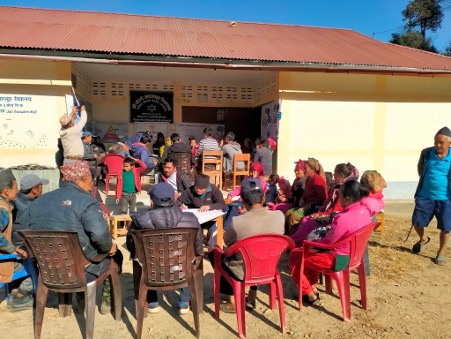By Rita Tisdall, p.t. Nepal
The project in Helambu works to ensure that children are safe in their communities and that they can access inclusive schools.
Since Nepal d. May 28, 2008 was declared a republic, it was not only the end of the monarchy, but also the end of the last formal Hindu state in the world.
However, Nepal is still burdened by a Hindu caste system that divides people by ethnicity and caste. The caste system has created interwoven patterns of inequality that are deeply rooted in underlying norms of social hierarchy and behavior. Social practices reproduce discrimination and structural inequality.
In general, Nepal’s caste system has excluded three groups in particular: Dalits, often called the untouchables or the untouchables as other groups would not touch or accept food from them, indigenous peopleand women. Although the caste system – especially in cities – has been watered down somewhat over the last decade, the system is still a key factor for exclusion in rural areas.
Tamangs are one of the most marginalized ethnic groups in Nepal. In Helambu, they make up 50% of the population. Another group of indigenous people, the Hyolmos, make upabout 20%. Dalits number about 10%, and the remaining 20% are so-called high-caste groups, such as Brahmin and Chhetri.
Although Nepal appears at the constitutional level as an inclusive democracy where caste shouldn’t matter at all, it’s hardly a surprise that it takes generations to shed imposed social bonds. Dismantling an apartheid system after two thousand years of segregation practices takes time, courage and persistence.
Just Nepal Foundation, CICED’s partner, has ten outreach workers who live – often in harsh conditions – in the communities where the project operates. The ten employees come from different groups in Nepalese society. Before being sent up the mountains to the communities in Helambu, they received intensive anti-discriminatory training called Reflect on my own practice. Their main job is to help schools and communities come together and work together for the benefit of their children and schools.
One of the latest endeavors of the project was an attempt to bring school boards and parents together to talk to each other and to create visions for their respective schools.
School boards are elected by parents every five years and with a mandate to run the local schools, the school board makes important decisions about school fees, curriculum, etc.
Until recently, there were rarely any real elections for school boards, they were what are known as paper committees. They were created “on paper” by school principals, who typically appointed one person, whom he made his school board chairman. Together, they ran the “show” they thought was too good without ever involving the parents.
Led and run by high-caste members, the school was a manifestation of segregation. The language of the school was different from the local language(s). Even the school’s appearance was out of context, sharply different from the local building style.
Traditionally, only high-caste groups could be educated, and while all levels of education are now open to all, the majority of school teachers and principals are the top two caste categories, and it will obviously take many, many years to train a critical mass of educators from all groups in Nepali society.
But, there is hope. Things are slowly changing for most of the 34 schools in Helambu. Real elections for school boards have just been held. This means that parents participate and vote, and there are now parents on many school boards. These parents have never been to school themselves, but they have a strong belief in the value of school and education and want the best educational opportunities for their children. But school is a mysterious and foreign concept to them. Most are illiterate, but they are “experts” in their own culture. And their children are what it’s all about.
One of the main reasons why schools and education don’t really work in Nepal is precisely because the teachers are from high caste groups. They often teach in communities that are very different from their own. They don’t speak the language of children and parents, their customs are different, and they live among people, teaching children that even as children they were told not to interfere with or touch. Such teachers are also alienated in their work.
Over the past four weeks, the project has brought together the three ‘school families’: parents, teachers and school boards. Over 390 people have spent a weekend together in small groups. Together is the key word. For many, it was the first time they spent time under the same roof with other cultures/castes.
They were introduced to the role and obligations of the school board. JNF facilitated discussions on exclusion and its legacy. Ideas on how communities could be more inclusive were put forward collectively. Plans and co-creation plans were drawn up for their schools for the next five years.
Participants lived, ate, sang and danced and returned to their villages to begin work. Yes, they need more guidance on how to demand better funding from the local government for their schools, for example, but the hitherto prevailing separation and alienation is challenged and a mood and spirit of togetherness is born.

Mom and teacher

Conversation with ‘the other’

Planning’

Parents and teachers clear land for a vegetable garden so children can have a good meal at school – item one on the ‘to-do list’

A father shows how to weave chairs that can be sold to raise extra money for the school.


